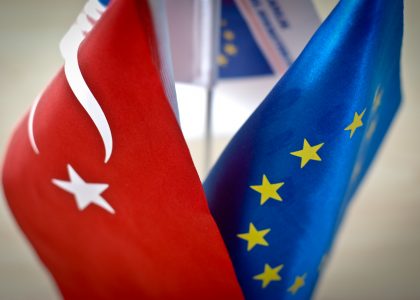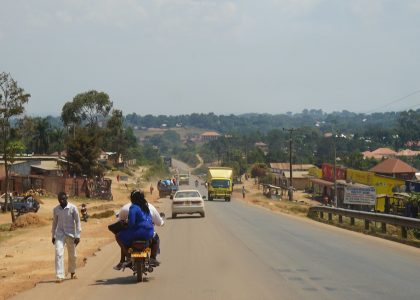Avidan Kent, University of East Anglia; Kirsten McConnachie, University of East Anglia, and Rishi Gulati, University of East Anglia
The international court of justice (ICJ) and the international criminal court (ICC) have been heavily involved in the politicking surrounding the conflict in Gaza. As the ICJ hears arguments surrounding accusations of genocide levelled at Israel, the ICC prosecutor recently applied for arrest warrants to be issued for the leaders both of the state of Israel and the Hamas militant group, which are engaged in bitter and deadly conflict in the Palestinian enclave.
Both the ICJ and the ICC are international judicial institutions located in the Hague. Both courts are a significant part of the international legal infrastructure aiming to consolidate and promote the international rule of law.
But it is important to appreciate that the ICJ and ICC are different bodies that perform distinct functions. The ICJ is the principal judicial organ of the United Nations (UN). It was established in 1945 by the United Nations charter, and it consists of 15 judges elected by the UN general assembly and the security council.
On the other hand, established in 2001, the ICC is an independent international organisation that was created by a treaty called the Rome Statute. It is the first permanent, treaty-based, international criminal court created to help end impunity for the perpetrators of the most serious of international crimes.
Operation and powers
The ICC is a criminal court that seeks to establish individual criminal responsibility for the most serious international crimes. It has a prosecutor with the power to carry out investigations of crimes within the jurisdiction of the ICC and the court can issue arrest warrants for individuals believed to have committed those crimes.
The ICC does not have a police force but state parties are obliged to comply with a requested arrest warrant. Trials are conducted as a criminal trial (with prosecution and defence counsel) before a tribunal of judges. The ICC can impose prison sentences, order fines and seizure of assets derived from the crimes committed. It also has the power to issue reparations to victims. It cannot impose the death penalty.
The ICJ, meanwhile, is concerned with state responsibility rather than individual culpability. A judgment of the ICJ can determine whether a state party to the case has breached international law and order reparations (including guarantees of non-repetition as well as financial compensation or restitution) for such a breach.
It will not identify individual perpetrators or assign individual responsibility. If a state believes there are rights in immediate danger, it can request the ICJ to issue “provisional measures” to preserve those rights until the case proceedings are completed. For example, provisional measures were requested and ordered in the case of South Africa v Israel to prevent continued alleged violations of the genocide convention.
Jurisdiction
The ICJ is a general court for the settlement of disputes between states and can accept disputes regarding any question of international law, including such issues as border disputes, diplomatic immunity, environmental protection, genocide and more. The ICC, in contrast, is a criminal court with jurisdiction limited only to the four crimes listed in the Rome Statute: genocide, crimes against humanity, war crimes and aggression.
While the ICJ can in principle deal with cases brought by any state, the ICC’s jurisdiction is more limited. It covers crimes that were committed in the territory of, or by the nationals of, one of the 124 member states of the Rome Statute.
Countries such as the US, China, Russia and Israel are not parties to the Rome Statute, hence the reported view by the US secretary of state, Antony Blinken, that the ICC has no jurisdiction when it comes to issuing arrest warrants over the conflict in Gaza.
Beyond these limitations, the ICC can deal with crimes conducted anywhere in the world, should the UN security council ask it to do so.
How do cases come before the two courts?
ICJ cases come before the court only with the disputing states’ consent. In other words, states cannot be “dragged” to court. A recent example is South Africa v Israel. Israel provided consent to resolve disputes that are related to the genocide convention before the ICJ when it signed the treaty in 1950, agreeing to take part in this legal process.
ICJ decisions in contentious proceedings are binding on the parties, although the court is unable to enforce its decisions.
A second type of ICJ cases are called “advisory opinions”. These are not traditional cases, so they are not legally binding, and they do not involve traditional “parties” to a dispute. Rather, this process permits a list of international organisations to send questions to the ICJ concerning international law, which the ICJ will answer by writing a legal opinion. While not legally binding, these legal opinions are regarded as authoritative and are often followed by states.
The ICJ was asked in the past to provide advisory opinions on a range of issues such as the legality of nuclear weapons, the independence of Kosovo, and lately also the obligations of states with respect to climate change.
ICC cases are initiated differently. Any of the 124 member states of the Rome Statute can refer a situation to the court, asking the prosecutor – currently UK barrister Karim Khan KC – to conduct a preliminary investigation. Alternatively, the UN security council can refer a case to the ICC, as was done, for example, concerning the situation in Darfur.
Finally, the ICC prosecutor has the authority to launch an investigation on his own initiative. Which in the case of the conflict in Gaza, he has done – hence his application for international arrest warrants issued on May 20.
Avidan Kent, Senior Lecturer in Law, University of East Anglia; Kirsten McConnachie, Professor of Socio-Legal Studies, University of East Anglia, and Rishi Gulati, Associate Professor in International Law, University of East Anglia
This article is republished from The Conversation under a Creative Commons license. Read the original article. Photo credit





